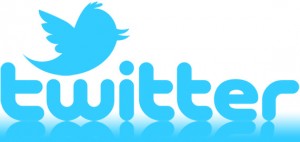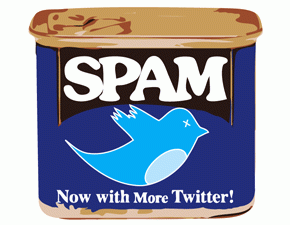By: Hillel Fuld (@hilzfuld)
People really hate when you tell them how to tweet, and rightfully so. Twitter is an open platform (or it used to be, but that is a topic for another time.) that entails writing a message of 140 characters max, and there are no rule books, so who made you the authority on Twitter? All that is fine and true, but anyone who spends a lot of time on Twitter can attest to the fact that at least 90% of the points mentioned below annoy the heck out of them.
By the way, if you are new to Twitter or don’t get what all the hype is about, see the Web’s most comprehensive “Twitter guide” written by yours truly, at Everything You Need to Know about Twitter and Tweeting.
Anyway, back to our point. It seems Twitter bots and spammers will always exist, but if you want to avoid being labeled one of those things by everyone you follow, the following five “rules” are a good place to start:
First One on One, and Only Then One to Many!
The way Twitter was built and engineered enables one person to communicate with many (followers). Except, when you sign up for a Twitter account, it doesn’t come with 10,000 preinstalled followers, nor is there any magic trick to achieving those numbers. You want to talk to many people at once? Try talking to one at a time first.
If I had a dime for every company that asked me “How do I get more followers?” or “Can you or someone you know give my product a shoutout so we can go viral?”, I would personally have enough money to send all those people to an extensive course on marketing. That is not how it works!
There are no shortcuts and there are not supposed to be. Want a lot of followers? Find interesting people, follow them, and then comes the difficult part. You sitting down? Talk to them. Yes, engage in conversation. No, not conversation that involves shameless plugs, just regular conversation. You know, the kind of conversation you would participate in in real life when meeting someone for the first time and building up a relationship.
Do that and you will not only get that person to follow (assuming the conversation is somewhat interesting and relevant), but that person’s followers might see your conversation and find it interesting as well, and your conversation might also come up in search so others might find you and follow. The point is, don’t think numbers, think people.
Remember Who You’re Talking to, First and Foremost
In continuation of the previous point, once you get those followers you so eagerly wanted, remember that they are listening. Don’t start tweeting things you think will get you more followers and ignore the people who already jumped on board. You will lose them.
Yes, Twitter is public and anyone can see your tweets. That means if there is an event that many people are following, tweeting with that event hashtag might get you some new followers. If you think spamming your followers with ten hashtags per tweet will get you far, you are in for a very big surprise.
@hilzfuld #overuse #of #frigging #hashtags
— Shai Tsur (@shaitsur) November 11, 2012
Yes, some people might find you via search, but you know what else will happen? The people who are already following and are now being bombarded with hashtags and spammy tweets will unfollow you. Aaaand we’re back to square one. By the way, this might be somewhat controversial since many people seem to like what is known as “Twitter chats”, but in my book, these fall under the same category and the name of that category is “Annoying things people do on Twitter to get more followers.”
There is RSS and There is Twitter.
Whatever your opinion of RSS feeds/readers is, you need to understand that if your Twitter feed is a glorified RSS feed with link after link and no added value of your own, then you are in essence competing with Google Reader. Good luck with that.
Sharing interesting content is important and even crucial to succeed on Twitter (assuming your definition of success is building up an engaged audience/community. If not, you can close this post right now.) but if you are not adding your own touch, then what exactly are you offering people in exchange for clicking that Follow button?
Share content but add a comment to your tweet with your take on the matter. Or tag the author and give him/her your feedback. Do not just share link after link because, well, that is boring and unnecessary when there are countless apps that do the same thing.
Doing PR on Twitter? Chances Are You Are Being Super Obvious
If you are trying to promote something, Twitter is a very very effective tool. After all, things have known to go viral on Twitter, right? Well, contrary to popular belief, the difficulty of doing PR of any kind on Twitter is not finding the right people or doing the outreach.
Why not illustrate this point with an example? If your Twitter bio says the words “PR”, “Marketing”, “Evangelist”, or anything else that implies the need for press coverage or exposure, then when reaching out to journalists/influencers, they are reading you like an open book. They know that when you tweet them about the product, you are doing your job and they are therefore more hesitant to respond than if it was just some random person recommending the very same product.
Well, many PR folks get this so what do they do? Well, they start by making an assumption that the very same journalist/influencer is either blind or very very unintelligent. If you think that writing one tweet to a journalist NOT about your product and upon getting a response, pitching your product, solves your problem, you are very wrong. No one is falling for this.
When people say build a relationship, that does not mean send one non promotional tweet, then promote the heck out of yourself. It means the same thing it means offline. Build trust, a connection, a reason that person should take any interest in you and after that is done, there is nothing wrong with sharing what you’re working on. But the big challenge in doing PR on Twitter is not outreach, it is the time spent building the relationship needed to make that outreach effective.
I Shouldn’t Have to Tell you This…
No really, you (and when I say “you”, I mean every human being on the planet) should have figured this out on your own. Unfortunately, that is not the case for many people. Do not use Twitter to offend others. Furthermore, do not say things that will offend people, even if that was not your intention. I am not implying that you should censor your thoughts, but it is important that you remember just how public Twitter (and the web in general) is.
Is that advice too abstract for you? OK, I didn’t want to do this but you forced my hand. If you are looking to build a wide and general audience on Twitter, you might want to stay away from tweets that fall under the category of TMI. You might also want to avoid tweeting about politics, unless of course your audience is following you for your input on politics. Other topics to avoid? Religion (again, some people have an audience that follows them as an authority on religion, this is not aimed at those people.), um, private/intimate topics (that is what DMs are for. KIDDING!), and well, any other topic that is going to offend the people who gave you the stage that is Twitter. Be sensitive to those people. Again, I shouldn’t have to tell you this…
Final Thoughts
In conclusion, I will say that it is true, there are no real rules to Twitter. Having said that, there are things that annoy many people and there are things that help you achieve your goals faster. If I had to sum up all the above points in one sentence, I would say “Act online as you would offline and do not do online what you would not do offline”.
If you want some other ideas of what annoys people on Twitter, take a look at my tweet below and the responses it got by clicking the date and time I tweeted it.
Hypothetically speaking, if someone were writing a blog post about annoying things people do on Twitter, what would u tell them to include?
— Hillel Fuld (@HilzFuld) November 11, 2012




